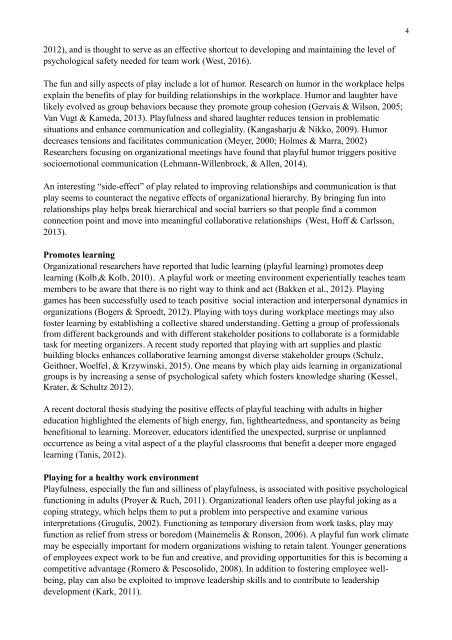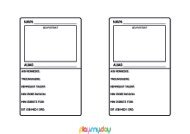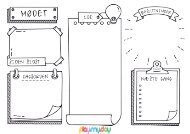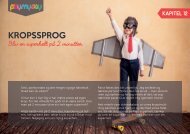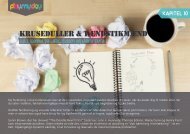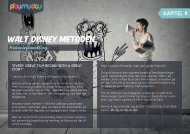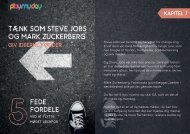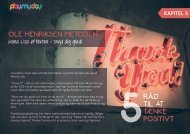PlayMyDay_report2
Play My Day report - a litterature review of the benefits of play in the workplace and qualitative pi,ot study of Playbox by Koncept Kompagniet
Play My Day report - a litterature review of the benefits of play in the workplace and qualitative pi,ot study of Playbox by Koncept Kompagniet
Create successful ePaper yourself
Turn your PDF publications into a flip-book with our unique Google optimized e-Paper software.
!4<br />
2012), and is thought to serve as an effective shortcut to developing and maintaining the level of<br />
psychological safety needed for team work (West, 2016).<br />
The fun and silly aspects of play include a lot of humor. Research on humor in the workplace helps<br />
explain the benefits of play for building relationships in the workplace. Humor and laughter have<br />
likely evolved as group behaviors because they promote group cohesion (Gervais & Wilson, 2005;<br />
Van Vugt & Kameda, 2013). Playfulness and shared laughter reduces tension in problematic<br />
situations and enhance communication and collegiality. (Kangasharju & Nikko, 2009). Humor<br />
decreases tensions and facilitates communication (Meyer, 2000; Holmes & Marra, 2002)<br />
Researchers focusing on organizational meetings have found that playful humor triggers positive<br />
socioemotional communication (Lehmann-Willenbrock, & Allen, 2014).<br />
An interesting “side-effect” of play related to improving relationships and communication is that<br />
play seems to counteract the negative effects of organizational hierarchy. By bringing fun into<br />
relationships play helps break hierarchical and social barriers so that people find a common<br />
connection point and move into meaningful collaborative relationships (West, Hoff & Carlsson,<br />
2013).<br />
Promotes learning<br />
Organizational researchers have reported that ludic learning (playful learning) promotes deep<br />
learning (Kolb,& Kolb, 2010). A playful work or meeting environment experientially teaches team<br />
members to be aware that there is no right way to think and act (Bakken et al., 2012). Playing<br />
games has been successfully used to teach positive social interaction and interpersonal dynamics in<br />
organizations (Bogers & Sproedt, 2012). Playing with toys during workplace meetings may also<br />
foster learning by establishing a collective shared understanding. Getting a group of professionals<br />
from different backgrounds and with different stakeholder positions to collaborate is a formidable<br />
task for meeting organizers. A recent study reported that playing with art supplies and plastic<br />
building blocks enhances collaborative learning amongst diverse stakeholder groups (Schulz,<br />
Geithner, Woelfel, & Krzywinski, 2015). One means by which play aids learning in organizational<br />
groups is by increasing a sense of psychological safety which fosters knowledge sharing (Kessel,<br />
Krater, & Schultz 2012).<br />
A recent doctoral thesis studying the positive effects of playful teaching with adults in higher<br />
education highlighted the elements of high energy, fun, lightheartedness, and spontaneity as being<br />
benefitional to learning. Moreover, educators identified the unexpected, surprise or unplanned<br />
occurrence as being a vital aspect of a the playful classrooms that benefit a deeper more engaged<br />
learning (Tanis, 2012).<br />
Playing for a healthy work environment<br />
Playfulness, especially the fun and silliness of playfulness, is associated with positive psychological<br />
functioning in adults (Proyer & Ruch, 2011). Organizational leaders often use playful joking as a<br />
coping strategy, which helps them to put a problem into perspective and examine various<br />
interpretations (Grugulis, 2002). Functioning as temporary diversion from work tasks, play may<br />
function as relief from stress or boredom (Mainemelis & Ronson, 2006). A playful fun work climate<br />
may be especially important for modern organizations wishing to retain talent. Younger generations<br />
of employees expect work to be fun and creative, and providing opportunities for this is becoming a<br />
competitive advantage (Romero & Pescosolido, 2008). In addition to fostering employee wellbeing,<br />
play can also be exploited to improve leadership skills and to contribute to leadership<br />
development (Kark, 2011).


